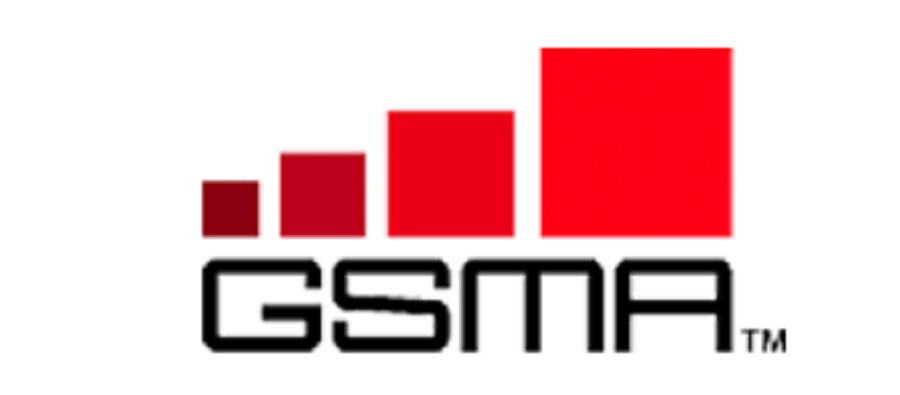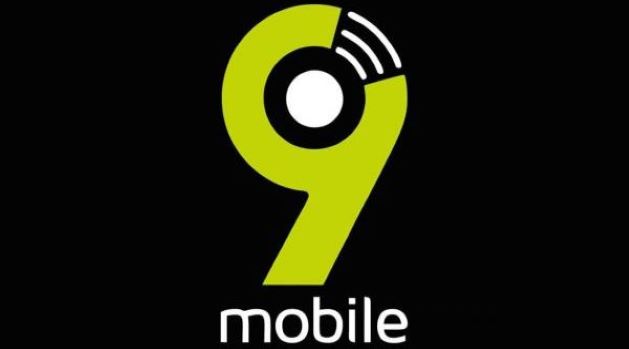Telecom
Global Coalition Formed to Make Smartphones Affordable Worldwide

A new global coalition made up of the World Bank Group, the ITU and the WEF Edison Alliance have been formed to drive innovative solutions to boost handset affordability for some of the world’s poorest populations.

According to GSMA, the coalition will collaborate to improve access to affordable internet-enabled devices to close the ‘Usage Gap’, which holds back around three billion people worldwide from maximising their potential in the global digital economy.
Mobile remains the primary – and often only – way people in Low- and Middle-Income Countries (LMICs) access the internet, accounting for 84% of broadband connections in 2023.
Yet three billion people – 38% of the world’s population – live in areas covered by mobile internet but do not use it due to barriers, including digital literacy and skills, lack of relevant content, online safety and access. Handset affordability is often recognised as the most significant barrier to get people online.
The new coalition will assess multiple ‘levers’ to reduce the cost of entry into the digital economy for low-income populations, with particular focus on LMICs and areas where handset affordability presents the highest barrier to getting online, such as in Sub-Saharan Africa and South Asia.
By exploring new solutions including ‘de-risking’ financing mechanisms, with the support of the World Bank Group, the coalition will enhance and complement ongoing efforts to expand digital access and affordability.
Going forward, the GSMA will continue to facilitate close collaboration between coalition members to share learnings, asses, and deploy tailored innovative models that can effectively narrow the usage gap.
Mats Granryd, director general of the GSMA, said: “Mobile has helped billions of people worldwide to play an active role in our increasingly digital world, but the cost of entry can still be too high for many on low incomes. Together with global mobile operators, and the support of the World Bank Group and other key coalition members, we’re determined to act on this issue.”
“By building creative solutions to bring mobile internet into the hands of those who need it the most, we believe we can make real strides towards closing the Usage Gap and help millions more maximise their potential by getting online.”
Guangzhe Chen, vice president for Infrastructure from the World Bank said: “Making internet connected devices more affordable is critical to accelerating digitalization in developing countries and ensuring no one is left behind.
“We’ve seen the power of digital technologies to unlock growth and job creation and to ease access to education and health services, but people must first be connected to make this a reality. This coalition brings together key players across industry and the development community to help bring this aspiration to life.”
Doreen Bogdan-Martin, secretary general of the ITU added: “In an age of unimaginable digital opportunities, devices are still out of reach for too many. With the 2025 Broadband Commission affordability target on the horizon, this new global coalition is an excellent complement to the work of the Commission’s Working Group on Smartphone Access.
It has the power to accelerate affordability and bring us one step closer to universal meaningful connectivity, a cornerstone of ITU’s mission and our digital future.”
The announcement of the Handset Affordability Coalition represents a tangible commitment from the mobile industry towards tackling the most substantial barrier to mobile adoption worldwide, and is backed by the GSMA’s Breaking Barriers campaign, which calls for greater focus and collaboration between governments and the mobile industry to address the multiple challenges holding back individuals from getting online.
Telecom
20 Years of Digital Leadership: Layer3’s Legacy and the Road Ahead

In 2005, few could have predicted that a small Nigerian technology company would evolve into one of Africa’s most trusted IT infrastructure, cloud, and cybersecurity brands. Today, Layer3 celebrates 20 years of doing just that, transforming IT from a technical necessity into a strategic advantage for enterprises, governments, and innovators across the continent.

The Foundation: Trust Earned, Not Assumed
The Layer3 story begins where every great enterprise story should, with trust.
Over two decades, Layer3 has earned a reputation for reliability in a sector defined by change. Across multiple industries: finance, energy, health, government, and telco, clients have turned to Layer3 not only for solutions, but for peace of mind.
As Layer3’s CEO, Oyaje Idoko, succinctly puts it, “Uptime, SLAs, fast response, fixing issues permanently, that’s what real IT service means, that’s what we built Layer3 to deliver. However, it’s not just about systems, it’s about people. Our team is the backbone of that promise: engineers, support staff, and every Layeron who shows up every day to make excellence a standard, not an exception.”
From deploying core network infrastructure, distributed branch networks, and disaster recovery solutions for banks, telcos, and large enterprises, to ensuring uninterrupted cloud infrastructure for Africa’s fastest-growing startups, Layer3 has become synonymous with business continuity at enterprise scale.
The Powerhouse: Innovation Without Compromise
While trust laid the foundation, innovation became the fuel. In 2019, Layer3 launched Layer3Cloud, Nigeria’s first locally owned enterprise-grade cloud platform. At the time, many questioned whether Nigerian businesses were ready to migrate from on-premise infrastructure or to host their data locally. Five years later, Layer3Cloud is powering banks, fintechs, large enterprises, and governments, delivering secure, elastic, and scalable compute power at home.
Beyond cloud, Layer3 has continued to evolve with the times:
- Fiber infrastructure rollouts that connect enterprises and residences to the future.
- Enterprise-grade zero-trust cybersecurity frameworks deployed across financial and public institutions.
- AI-driven and software-defined network solutions through partnerships with global OEMs like Juniper Networks, HPE, Cisco, and Fortinet.
Behind every innovation is a team of engineers whose brilliance is matched only by their resilience.
Reflecting on Layer3’s journey, Oyaje Idoko highlighted the often-overlooked role of technical talent, “Behind every seamless connection and resolved incident is a network engineer who’s worked through the night, responded to a 3am call, and made sure systems stay up when it matters most. Shake their hand and ask them about routing, about switching. These are the unsung heroes powering Africa’s digital future. Indeed, Layer3’s engineers don’t just build networks, they build nations.”
The Shield: Defending Africa’s Digital Economy
In today’s world, trust and innovation mean nothing without security and at Layer3, cybersecurity isn’t just a service, it’s a mindset.
“We’ve built an elite team of cyber defenders, and we’re still growing. We defend banks, telcos, governments and organizations of all types and sizes. If you’re in Africa and serious about protecting your business, you should be speaking to Layer3”, says Godwin Michaels, Layer3 CTO.
Layer3 is at the frontline of defending Africa’s most sensitive data. From real-time threat intelligence and incident response to managed SIEM and penetration testing, the company is quietly but forcefully defending Nigeria’s digital borders.
This commitment has earned Layer3 the loyalty of institutions where downtime isn’t just an inconvenience, it’s a national risk.
Layer3 has also been recognized multiple times over the years as a leading player in the IT space across Africa.
Two Decades of Impact: Highlights at a Glance
Year Milestone
2005 Layer3 founded in Abuja, Nigeria as a Virtual Network Operator
2007 Expanded to Lagos and rolled out last-mile fiber infrastructure across Abuja and Lagos
2008 Expanded into enterprise networking and managed services
2015 Launched cybersecurity division
2019 Launched Layer3Cloud, Nigeria’s premier local cloud platform
2021 Rolled out Layer3Fiber, an FTTH service expanding broadband to homes and small businesses
2025 Celebrates 20 years with thousands of projects completed across sub-Saharan Africa and counting
Shaping Africa’s Digital Future: The Road Ahead for Layer3
As Layer3 enters its third decade, its sights are set higher: expansion into new African markets, hybrid cloud deployments, AI-driven network infrastructure, digital public infrastructure solutions, and most importantly, developing the next generation of African tech talent.
According to Oyaje, “Layer3 was built on the belief that African businesses deserve world-class technology delivered by people who understand the terrain. That vision hasn’t changed, it’s only gotten bigger.”
From a startup with a dream to a national asset securing the future, Layer3 has become more than a technology company, it’s a legacy of excellence.
To our clients, partners, regulators, and Layerons, thank you for 20 years of belief.
Here’s to 20 more years of trust, innovation, and impact.
We are Layer3. We deliver peace of mind.
Telecom
Y’ello Care’s 21-Day Campaign Bridges Digital Divide for Thousands Nationwide

In a nation where the Information and Communications Technology (ICT) sector contributed a 19.78% to Nigeria’s real Gross Domestic Product (GDP) in Q2 2024, the recently concluded Y’ello Care initiative, which ran from June 1 to June 21 2025, has demonstrated how digital tools can transform lives at the grassroots level.

This year’s program, themed ‘Connecting at the Roots,’ directly aligns with Nigeria’s National Digital Economy Policy and Strategy 2020-2030, which seeks to leverage digital technology for comprehensive economic growth.
Y’ello Care’s focused efforts are crucial in bridging the existing digital divide, especially given that while mobile phone penetration has reached 84%, equitable access and digital literacy remain key challenges for many of Nigeria’s over 163 million internet users.
At the core of the employee volunteerism initiative was a comprehensive approach to digital inclusion. The program delivered extensive training and empowerment sessions covering vital areas such as digital literacy, artificial intelligence, financial inclusion, content creation and monetisation, personal branding and employability.
A significant component of the initiative involved the donation of essential technological resources. Over 86 desktop computers and 133 learning devices were distributed, providing tangible tools for education and skill development.
Furthermore, the deployment of over 400 connectivity tools, including routers and MiFi devices, has significantly enhanced internet access, laying the groundwork for sustainable digital engagement.
To complement these efforts, thousands of branded kits, educational supplies, and business support items were also distributed, directly aiding beneficiaries in their learning and entrepreneurial pursuits.
These tangible contributions directly address the infrastructure gaps that hinder digital inclusion, particularly in underserved communities.
Solar power infrastructure was installed in selected schools, ensuring sustainable access to Information and Communication Technology (ICT) even in areas with unreliable power grids.
The impact of this 21-day intensive program is evident in its impressive reach. The initiative directly benefited over 8,932 individuals across diverse communities, schools, and health centres. The Medical Official of Ikoyi/Obalende Local Council Development Area (one of the beneficiaries of the Y’ello Care programme), Dr Akintayo Akintoba Adebayo, expressed profound admiration for the recent donation by the company. He said he was “speechless” at the positive developments unfolding daily in the area and noted that the donated items were essential medical supplies poised to significantly enhance healthcare delivery in the local government.
This undertaking was made possible by the dedication of over 1,145 staff and volunteer facilitators, who committed more than 3,947 volunteer hours across 18 divisions and national sessions.
Their collective efforts underscore the power of human connection in driving digital transformation and creating lasting positive change.
In conclusion, the Y’ello Care initiative stands as a powerful testament to the potential of collaborative efforts in addressing societal challenges. By combining technological innovation with dedicated human support, this and similar programmes bridge digital divides and empower countless individuals, fostering a more inclusive and digitally literate society from the ground up.
Telecom
Court to Decides on 9Mobile Ownership Tussle September 24

Federal High Court in Abuja has fixed September 24 to rule on several applications in the case of Abubakar Ismaila Isa, a businessman, who claims that his 43 million shares were allegedly transferred to Emerging Markets Telecommunication Services Limited, operating under the trade name 9mobile, without his consent.

The matter before Justice Mohammed Umar on Wednesday, was filed by Isa’s legal team led by Femi Atteh, SAN, in suit number FHC/ABJ/CS/1971/2024.
The plaintiff seeks an order declaring him the “beneficial owner of the 43,000,000 (forty-three million) ordinary shares held in trust for him by the 1st Defendant (Seltrix Limited) in the capital of the 3rd Defendant (Teleology Nigeria Limited).”
He accused Seltrix Limited of purportedly transferring the said shares to 9mobile without his consent, resulting in the alleged illegal change of control of 9mobile to LH Telecommunication Limited by the Corporate Affairs Commission and Nigerian Communications Commission.
Joined as defendants in the suit are Seltrix Limited, Hayatu Hassan Hadeija, Teleology Nigeria Limited, Mohammed Edewor, Emerging Markets Telecommunications Limited, CAC, NCC, LH Telecommunication Limited and General Theophilus Yakubu Danjuma (Rtd) (first to ninth defendants).
A counter-affidavit sworn to and filed on behalf of Seltrix Limited, Hadejia had described the plaintiff’s application as a reckless abuse of the court process.
He urged the court to dismiss the application and award substantial costs against the plaintiff.
He also demanded concrete evidence of any trusteeship arrangement involving him or Seltrix Limited concerning the alleged N43 million ordinary shares in the capital of the third defendant, Teleology Nigeria Limited, or any matter related to the suit.
Hadejia stated that the plaintiff’s motion, dated 27 January but filed on 28 January, was a fabrication designed to mislead the court.
At the resumed hearing, Michael Aôndoakaa, SAN, counsel for Teleology, 9mobile, and others, drew the court’s attention to his preliminary objections, asking the court to strike out the case for “being statute-barred” as it was filed out of the stipulated time required.

 E-Financial2 days ago
E-Financial2 days agoCourt Affirms NIBSS Authority to Manage BVN

 Telecom2 days ago
Telecom2 days agoMTN, 9mobile Commence Ground-breaking National Infrastructure Partnership

 E-Financial2 days ago
E-Financial2 days agoNigerian Banks End Years of Embargo, Resume Intl Transactions on Naira Cards

 General News2 days ago
General News2 days agoCybervergent Selected as World Economic Forum’s 2025 Technology Pioneer Company

 E-Business2 days ago
E-Business2 days agoNIMC Says NIN Services Back Online

 Telecom2 days ago
Telecom2 days agoKarl Toriola Champions Digital Education for Employability @Sigma Club Lecture

 E-Business2 days ago
E-Business2 days agoReport Reveals African Organizations Dangerously Overestimating Cyber defences

 E-Financial2 days ago
E-Financial2 days agoFlutterwave Secures 20 more US Money Transmitter Licences



























